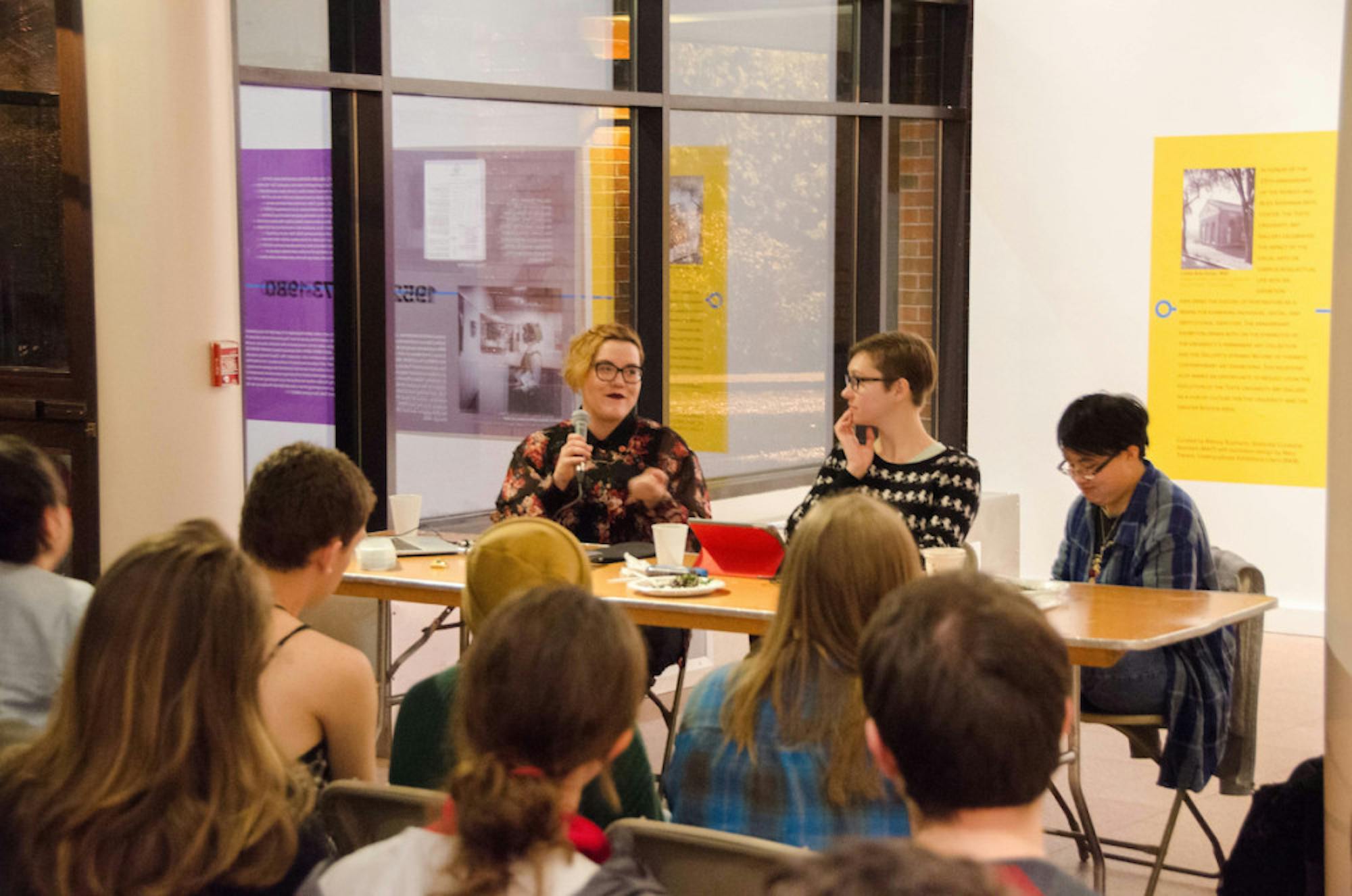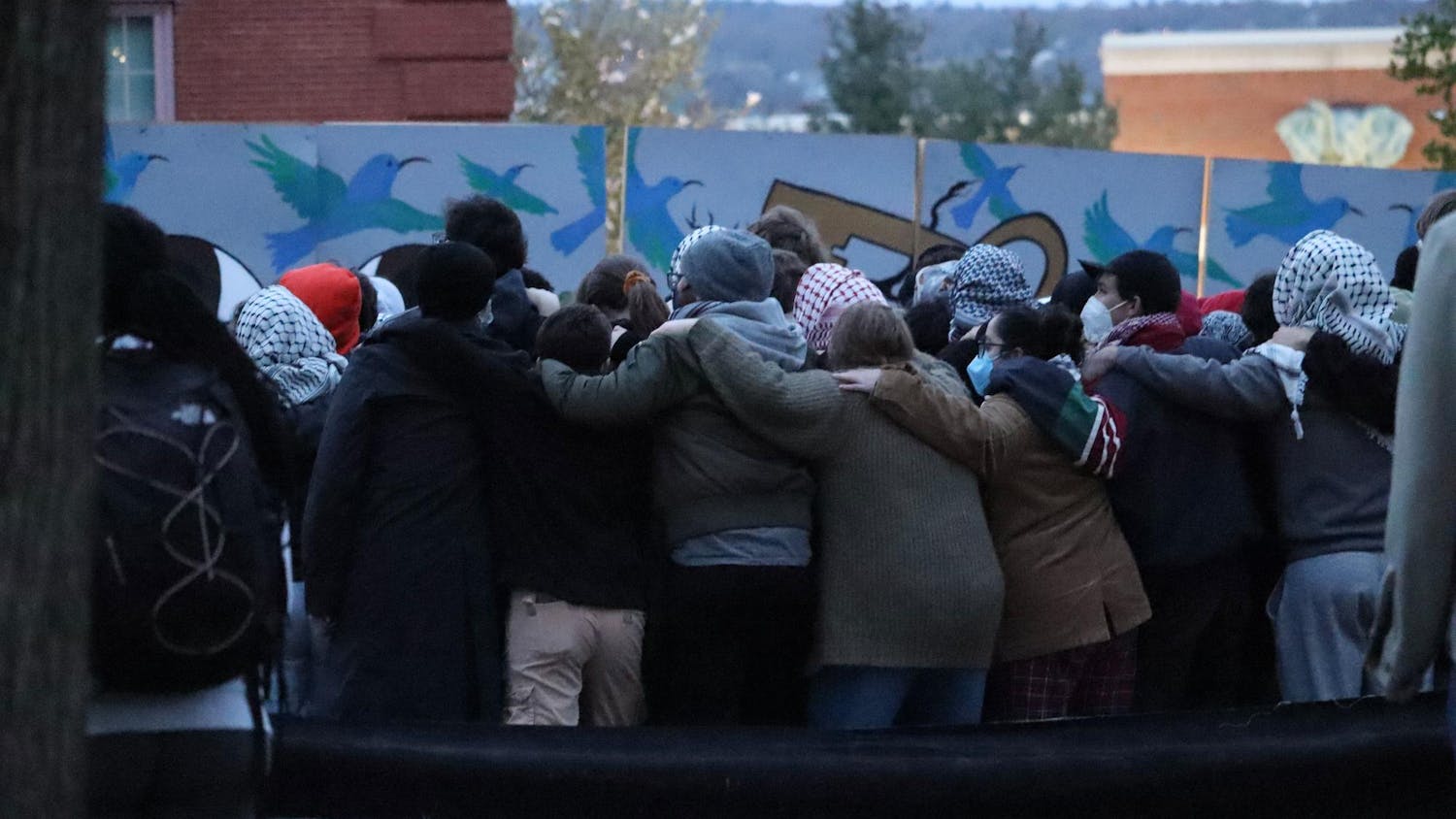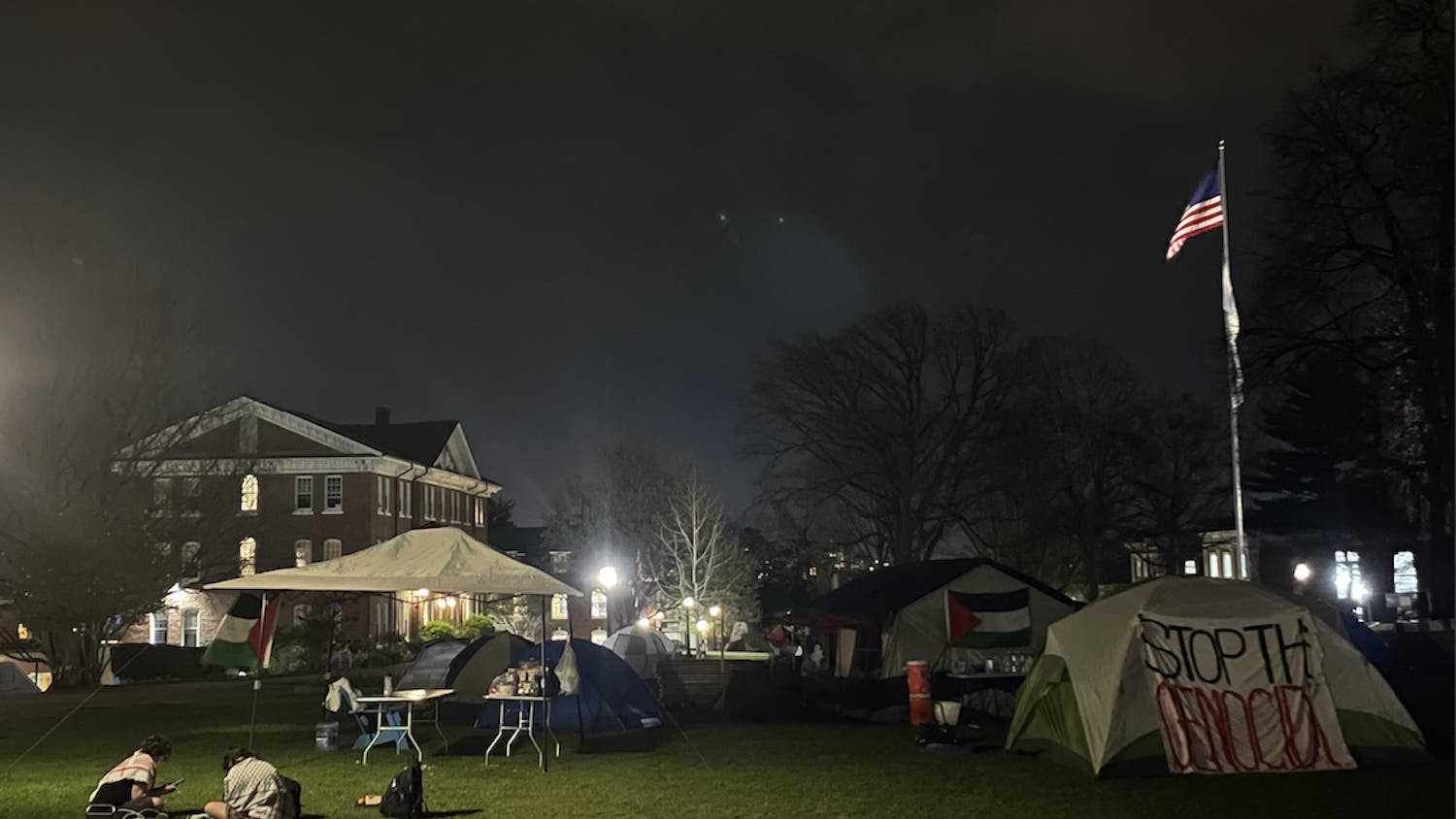Hannah McGregor and Marcelle Kosman of Canadian podcast “Witch, Please” were joined by Experimental College Professor Lydia Brownon Nov. 15 for a panel discussion about queerness and disability representation in the “Harry Potter” series. The event was hosted by the Tufts Podcast Network.
Brown, a disability activist, began by speaking about neurodivergent characters in fiction. They mentioned that characters who are explicitly labelled as autistic are usually described as a “collection of deficits,” whereas characters whose disabilities are implied are more realistic and relatable. Brown mentioned Luna Lovegood and Hermione Granger as characters in “Harry Potter” who could be read as autistic or otherwise neurodivergent.
McGregor said that as a former English professor, she often discouraged students from talking about the relatability of literature and instead focused on how literature could introduce them to different experiences. However, the dismissal of relatability comes from a position of privilege, McGregor noted.
Brown added that queer, trans and disabled children often feel isolated.
“It’s exciting when you find anybody in fiction that seems to remind you of yourself,” they said.
The speakers discussed the scene in which Neville Longbottom meets his parents, who have been tortured into insanity and are confined at St. Mungo’s Hospital for Magical Maladies and Injuries. Brown points out the ableism of such language, as Neville’s parents exist only to “signify the tragedy of Neville’s life.”
Brown spoke about how disabled people are often seen as less than fully human, a view that is reinforced by how the treatment of creatures like elves and centaurs in the Harry Potter universe mirrors systems of marginalization in the real world, such as ableism and racism.
Kosman noted that a recurring topic in “Witch, Please” is the problem of using non-human characters as allegories of real world oppression.
The implication is that these oppressed people are less human, and the only way they can be understood is by representing them as non-human creatures, she said. She added that this also implies that people with these marginalized identities do not experience oppression in the fictional world.
“Where are the non-white people?” Brown asked, as McGregor counted out the non-white characters in "Harry Potter" on one hand.
The panelists then spoke about Remus Lupin, a werewolf whose lycanthropy was confirmed by “Harry Potter” author J. K. Rowling as a metaphor for HIV/AIDS. They pointed out the various ways in which Lupin was coded as a gay man as well as the problems with such a metaphor. Not only is queerness linked with monstrosity, they said, but the books also emphasize Lupin’s position as a victim of violence, and his heteronormative reproductive relationship.
Finally, the speakers discussed the portrayal of squibs, who are non-magical people born to magical parents in the "Harry Potter" universe.
“I was taken aback by how vile the representation of magical disability is,” Kosman said.
She explained that the squibs, especially Mrs. Figg and Argus Filch, were characterized by their unlovableness. Filch’s attempts to gain magic are also linked to conversion therapy and efforts to cure mental disability, the panelists said.
McGregor concluded by emphasizing the importance of holding onto the value of works of fiction like “Harry Potter,” while critiquing them at the same time.
“We’re going to keep insisting on better even while we read these books and are comforted by them and love them,” she said.
The discussion was then opened up to audience questions.
"Witch, Please" discusses Harry Potter, disability, queerness






